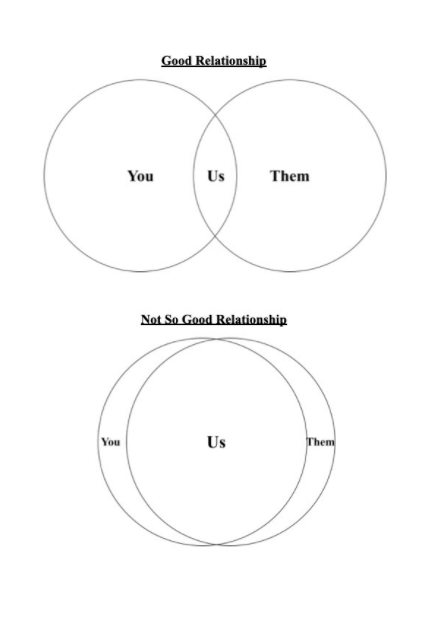The Venn Diagram of Love
Along the tumultuous journey that is the highway of life, everyone arrives at a roadblock presenting a three-word question in bold letters that will guide the remainder of their drive: what is happiness? We can all agree that a happy life is preferable to any alternative mode of existence. But, when it comes to deliberation over how to achieve consistent bliss and fulfillment, things get a little complicated. Some may argue that the purpose of human existence is to aspire towards a set of noble and self-evident moral truths such as honesty, kindness, and selflessness, despite potential personal costs. However, when faced with existential dread fueled by the overwhelming weight of our vast and seemingly unforgiving universe, others reject altruistic efforts and embrace a more hedonistic lifestyle, living for the moment and maximizing personal pleasure at every opportunity.
Luckily for us, the Ivy League nerds over at Harvard have taken an empirical approach to solve this conflict. Through over 80 years of meticulous observation, they now present their findings in the Harvard Study of Adult Development. Long story short, by surveying hundreds of individuals over decades, researchers found that meaningful relationships are the most significant indicator of joy and longevity. In fact, at age 50, the quality of a person's relationships is more indicative of physical well-being than cholesterol levels. So, as long as you're sitting across the table from someone you love, feel free to scarf down as many extra greasy bacon-filled cheeseburgers as your heart desires.
Great, so we know that intimate relationships are paramount to leading a happy life. But, one question remains, how can we cultivate healthy connections and avoid the cataclysmic pitfalls of interpersonal toxicity? To solve this conundrum, it is my pleasure to present the Venn Diagram of Love. Codependence gets a bad wrap. It's that part of you that feels as if you cannot live without someone and is represented by the "Us' 'section of the diagram. In moderation, codependence makes lifelong friendships, familial bonds, and true love the most potent happiness elixirs out there. When two people with a strong sense of self form a healthy bond, each partner's personal development is nurtured by the presence of a compatible counterpart. With just a sprinkle of codependence, also known as love, we can deepen our understanding of the self, of others, and of the world.
However, all too often, relationships, especially steamy hot romantic ones, envelope the individual and cause the circles of "You" and "Them" to reach a near full eclipse. This destructive phenomenon leaves only a minute crescent of neglected individualism in its wake, and when you inevitably find yourself without 'your person' for even a moment, life can quickly become unbearable. Even more unfortunate is the fact that in most cases, when the death spiral of malignant codependence sinks its teeth into a once beautiful connection, the diagram's circles become exponentially more attracted to one another and eventually inseparable. Therefore, to avoid poisoning the most indispensable components of your life, you need to be proactive.
Take an introspective inventory of your relationships and note the parts that belong to you, the parts that belong to your partner, and the bits that you have the privilege to share with one another. If your Venn Diagram is balanced, good, keep it that way! If it seems a little out of whack, it's time to reevaluate things. It is vital to derive joy from sources unrelated to your partner and all too easy to allow “your” personal happiness pumps to become “our” personal pump. As cheesy as it sounds, being satisfied in any relationship requires that you are satisfied on your own. I know you want to be happy. We all do! And science has shown that deep, loving connections with other people are the keys to that kingdom. But, just like any other tool, keys need to be kept clean and maintained. I urge you to create your own Venn Diagram of Love for each person who you could not live without, because no matter what, from time to time, you will need to find love for yourself in their absence.
The philosopher Fredrich Nietzsche famously said that "the noble soul has reverence for itself." While I firmly agree with his words, it's hard not to consider the fact that Nietzsche was utterly miserable for most of his life and mainly relied on others to survive. In light of those facts, I'd like to amend his proclamation and suggest that the happy, noble soul maintains self-reverence while being shared with others through love. Meaningful connection through the recognition of others' unique individual beauty is what makes this life worth living. Just make sure that when you open your heart to the world, you don't lose yourself.
